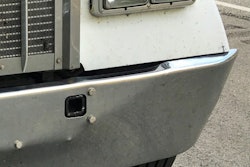Be aware of common revenue myths. Failure to do so can handicap your business with focus on the wrong number, at expense of costs and income.
Myth 1 -- Concentrate only on increasing revenue because costs will take care of themselves. After reaching your break-even point, only a fraction of every extra dollar of revenue goes into your pocketbook, while 100% of every extra dollar saved stays in your pocket.
Myth 2 -- More revenue per mile is the answer to all problems. For leased and independent owners both, revenue per mile doesn’t change a whole lot from company to company or operation to the operation, but there can be a big difference in miles, gross revenue, costs and any offsetting reimbursements.
Myth 3 -- All you have to do to be successful is run hard and get a lot of miles. Revenue is only half of the profit equation; costs are the other half. It’s possible to generate a lot of revenue yet spend $1.10 to make every dollar. Furthermore, in percentage of revenue pay programs with self-dispatch options for experienced operators, like running entirely independent with your carrier authority, choosing loads to maximize revenue on the shortest number of miles is the best strategy toward long-term financial success.

Myth 4 -- You can tell how well you’re doing by the size of your settlement check or weekly revenue figures. The settlement check/weekly revenue is only a small part of the success picture. Miles driven, loads hauled, conditions, mechanical problems, time off and, especially, costs all have to be considered.
Myth 5 -- Your company can control how much it pays you per mile. Your company has limited influence on the rates it charges shippers because it is largely the marketplace, through routinely revisited negotiations, that dictates rates.
Find more information about bedrock business practice, among a myriad other topics, in the Overdrive/ATBS-coproduced "Partners in Business" manual for new and established owner-operators, a comprehensive guide to running a small trucking business. Click here to download the updated 2022 edition of the Partners in Business manual free of charge.








